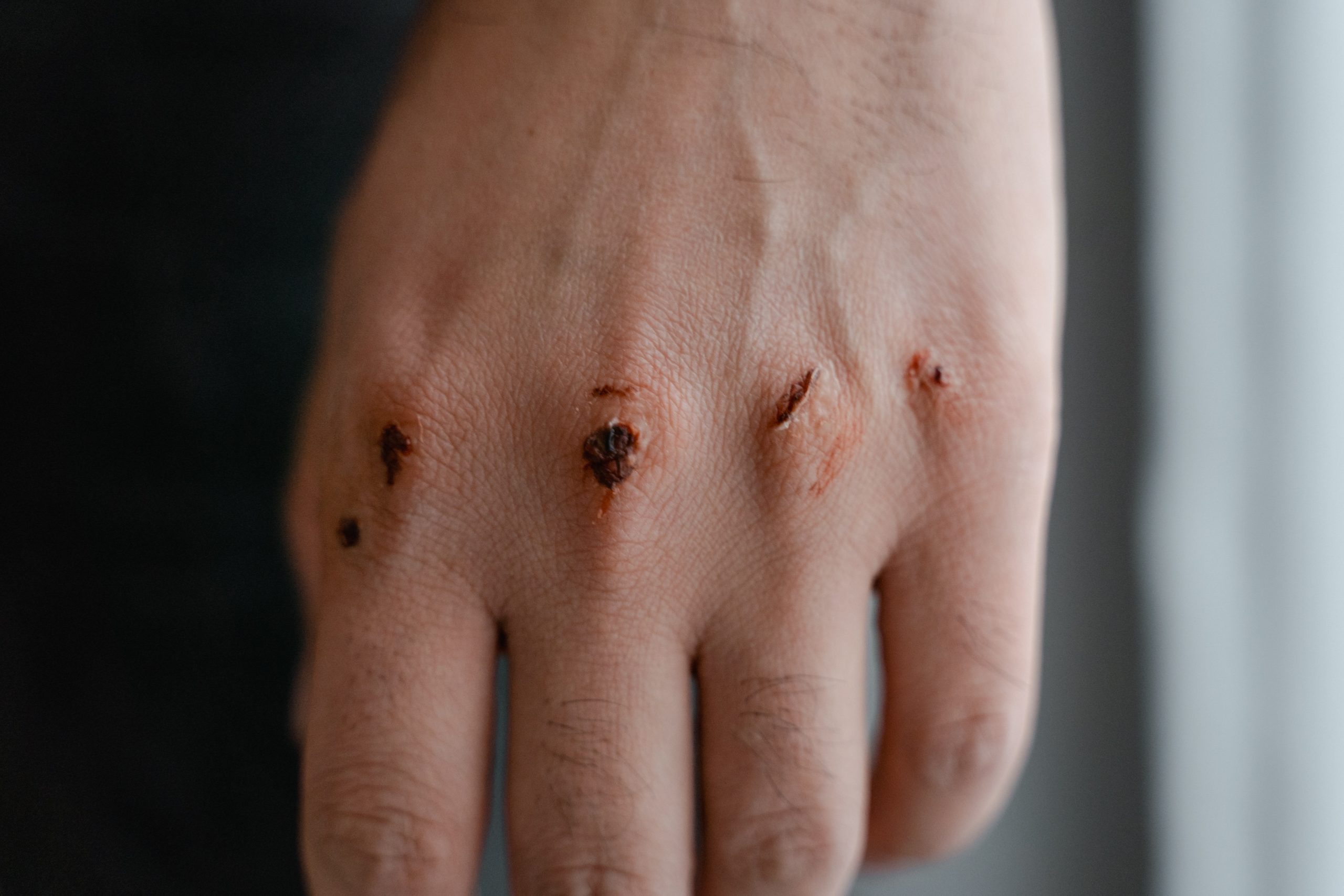If you are cutting or self-harming in other ways, skills can help you to relieve the tension.
Help for self-harming behavior (SIB)
If you hurt yourself in any way, it is important to get help and not to be alone with your feelings. Is there an adult with whom you get on well and whom you can trust? You are welcome to contact us. We are there for you – anonymously and confidentially.
Counseling centers, psychotherapists or child and youth psychiatrists can help you find another way to deal with your stress. We will gladly inform you about the possibilities in our counseling services.
Skills for SIB
Skills are abilities and techniques that can help you to get out of tensions or unpleasant moods on your own in the short term. They can be an alternative to self-harm. They can help you in a critical situation, but in the long term it is good to turn to a counseling center.
You can try this, for example:
TIP — First aid
Try to replace the self-harming behavior with behavior that does not harm your body. The idea is to find a short-term strategy that keeps you from giving in to the impulse to self-harm. What this might be varies from person to person. For example, the following have been found to be helpful
- Writing a message to a friend, calling them or meeting them.
- Pressing ice cubes against the forearm
- Snapping rubber fingers on the skin
- Taking a cold shower
- Punching a pillow or mattress
- “Get out of the situation” – change the environment
- Be creative (write, draw, make music,)
- Biting on something spicy (pepperoni, ginger)
- Exercising physically
- Go outside and shout
- Sing out loud
- Avoid thoughts and situations that bring you down
- Relax (breathe deeply, take a bath…). There are also videos and apps to help you relax.
Important: This is really only a first interim solution and not a real remedy for the problem or a cure! Another strong sensory stimulus (such as cold) can help to avoid the urge to self-harm in the short term (!).
TIP:
- It can also be helpful to set limits for yourself. Forbidding yourself from engaging in self-harming behavior in certain places, at certain times, etc.
- You could dispose of objects that you use for self-harm or keep them out of your reach.
- Also, try not to be alone with your feelings and problems. Talk to someone about how you are feeling and what you are feeling.
- Observe yourself. Write down when you do this behavior. What happens before, what you feel at that moment. Also write down what might have helped you not to hurt yourself.
- Write a list of reasons why you should not hurt yourself. Look at these when you feel the urge again.
- Try to postpone the urge. Tell yourself that you can still do it in 20 minutes. Maybe you will be able to put it off for another 20 minutes.
Treating wounds caused by SIB
You should take care of the wound caused by self-harm yourself. This will prevent the wound from getting infected and reduce scarring.
Deep, large, gaping or bleeding wounds should always be treated by a doctor! They may need to be stitched or stapled. If in doubt, consult a doctor! You can also go to a hospital outpatient clinic for clarification and treatment of the wound.
TIP — Dealing with scars
The scars from self-harm usually cannot be completely removed. How visible they remain depends on how deeply you cut yourself, and the way you treat the wound can also play a role. Once the wound is closed, it is a good idea to apply scar treatment ointment regularly over several months. If the wound is not too deep, you may be able to prevent the scars from growing together with the layers of skin underneath. It will also make the scars flatter and lighter. The sooner you start the better. For older scars, you can talk to a dermatologist to see if there are ways to improve their appearance (e.g. laser treatment).
For many people, the question is whether or not to hide their scars from others. Those affected deal with it in very different ways. Some hide the scars under clothing or try to avoid some situations. In some unpleasant situations, camouflage make-up can be used to hide the scars.
Others accept the scars as part of themselves and deal with them openly. Maybe you wonder how those around you would deal with your scars. You could try it first with people you trust and then go from there.
Find out about self-injurious behavior: What is self-harming behavior, who is affected, what are the possible causes, etc.?
We are happy to be there for you in our counseling services. Get in touch!
For further help and support — Speak with a licensed therapist today.
